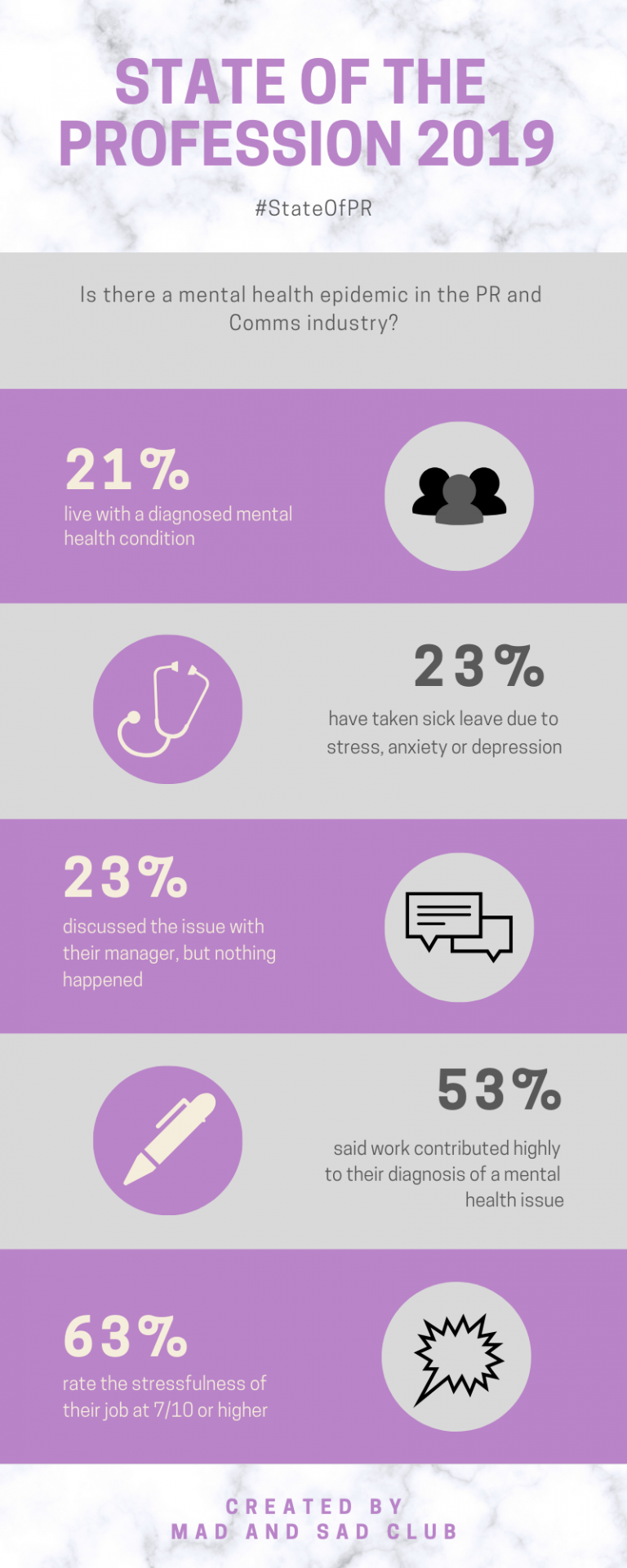 “What can internal comms pros do about the mental health of the comms industry?”
“What can internal comms pros do about the mental health of the comms industry?”
April 8, 2019
We all know that comms is stressful. To-do lists as long as your arm, sky high expectations, senior stakeholders breathing down your neck. These can all be motivating factors at times, but if you experience these sorts of pressures for too long without respite, stress levels rise and you become less mentally resilient, sometimes resulting in more serious mental health issues like anxiety and depression.
This week, the CIPR released its State of the Profession report, quantifying the state of the mental health of the comms industry.

Some of these stats are pretty shocking – the one that is indelibly inked on the inside of my eyelids is that 23% of people spoke to a manager about their mental health issue and nothing happened.
You have to hope that this is down to managers not knowing what to say, what support is available, or how to help their team member. Whatever the reason, it’s a stat we need to act on.
How?
Thinking about how to tackle mental health in the workplace can seem overwhelming if you haven’t experienced mental health struggles yourself. It’s complex, everyone experiences it differently, it’s deeply personal.
To try and cut through the confusion, I use a three-stage model:
Understand mental health – the best way to do this is from human experience
Learn how to talk about it confidently – at an organisational and human level
Take action – put in place training, have some clear and widely available resources, start embedding good mental health practices into your culture
What’s the role of IC in all this?
It may feel like mental health is part of the wellbeing agenda – squarely the responsibility of HR teams. In my experience, that’s not the case everywhere.
I speak to self-organised wellbeing or mental health champions and committees, IC pros and HR teams alike. While it’s very topical and rightly receiving more and more attention, mental health awareness and action hasn’t been gripped by one industry yet.
Thinking about the three-stage model, there’s a significant role for IC teams – getting under the skin of the issue and educating the organisation can start with good internal communications. Talking about the issues at an organisational level can start with a wellbeing campaign; helping managers have individual conversations can be supported by strong targeted comms and resources, as well as a feedback loop to iterate your resources.
If you’re interested in learning more about mental health at work and what you as an internal comms professional can do to tackle it, come along to this event on 1 May, where we’ll be talking about just that.
 Jo Hooper set up the Mad and Sad club in 2019, after 11 years in communications. Her mission is to help people manage their mental health at work and not just survive, but thrive.
Jo Hooper set up the Mad and Sad club in 2019, after 11 years in communications. Her mission is to help people manage their mental health at work and not just survive, but thrive.